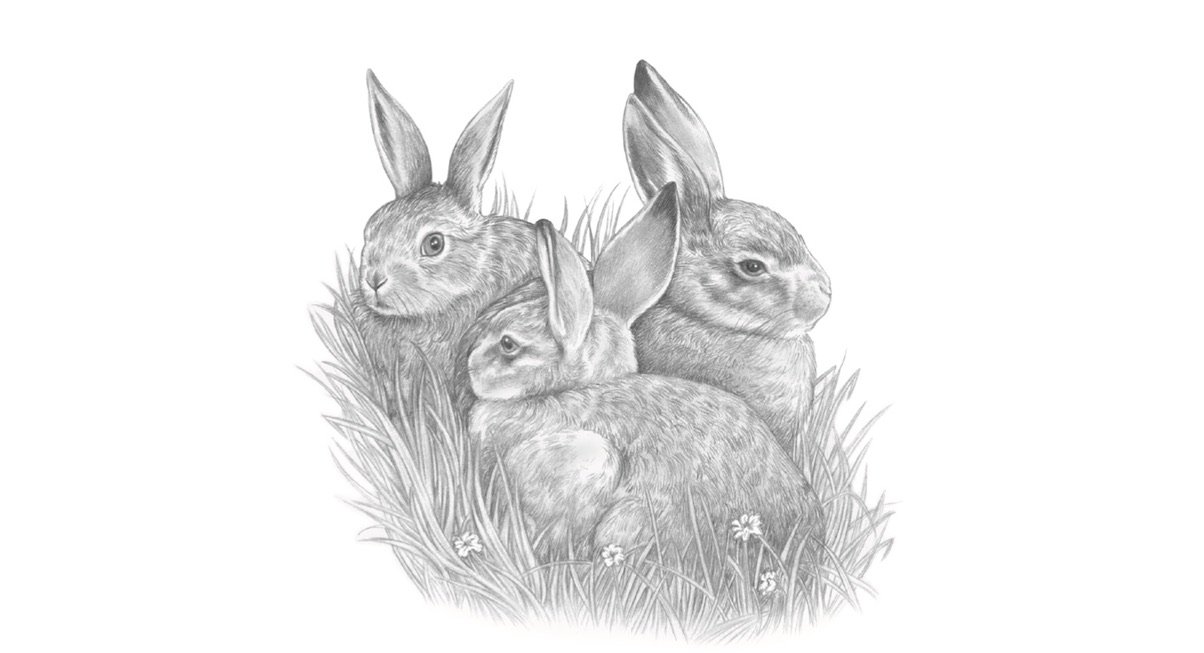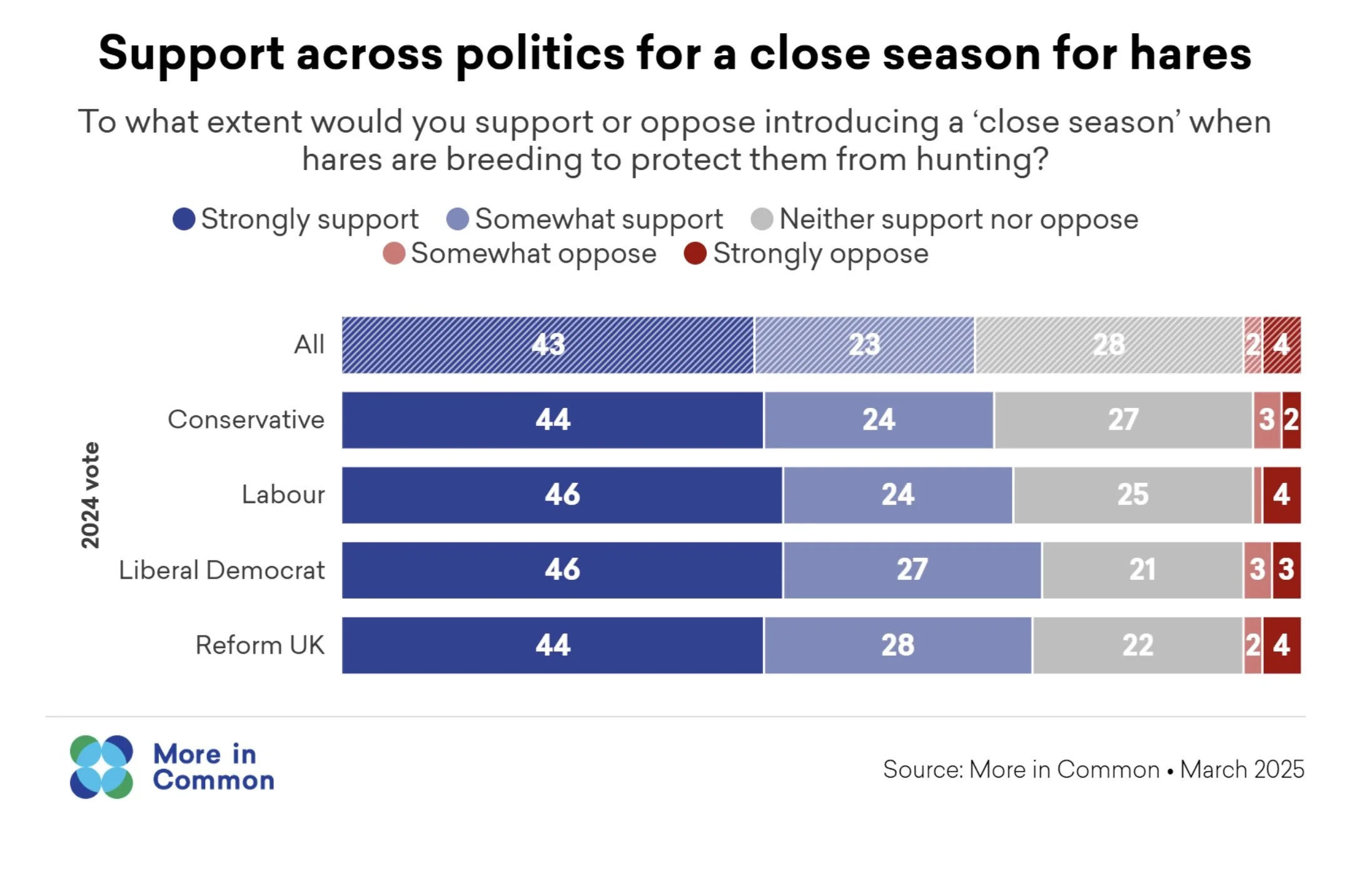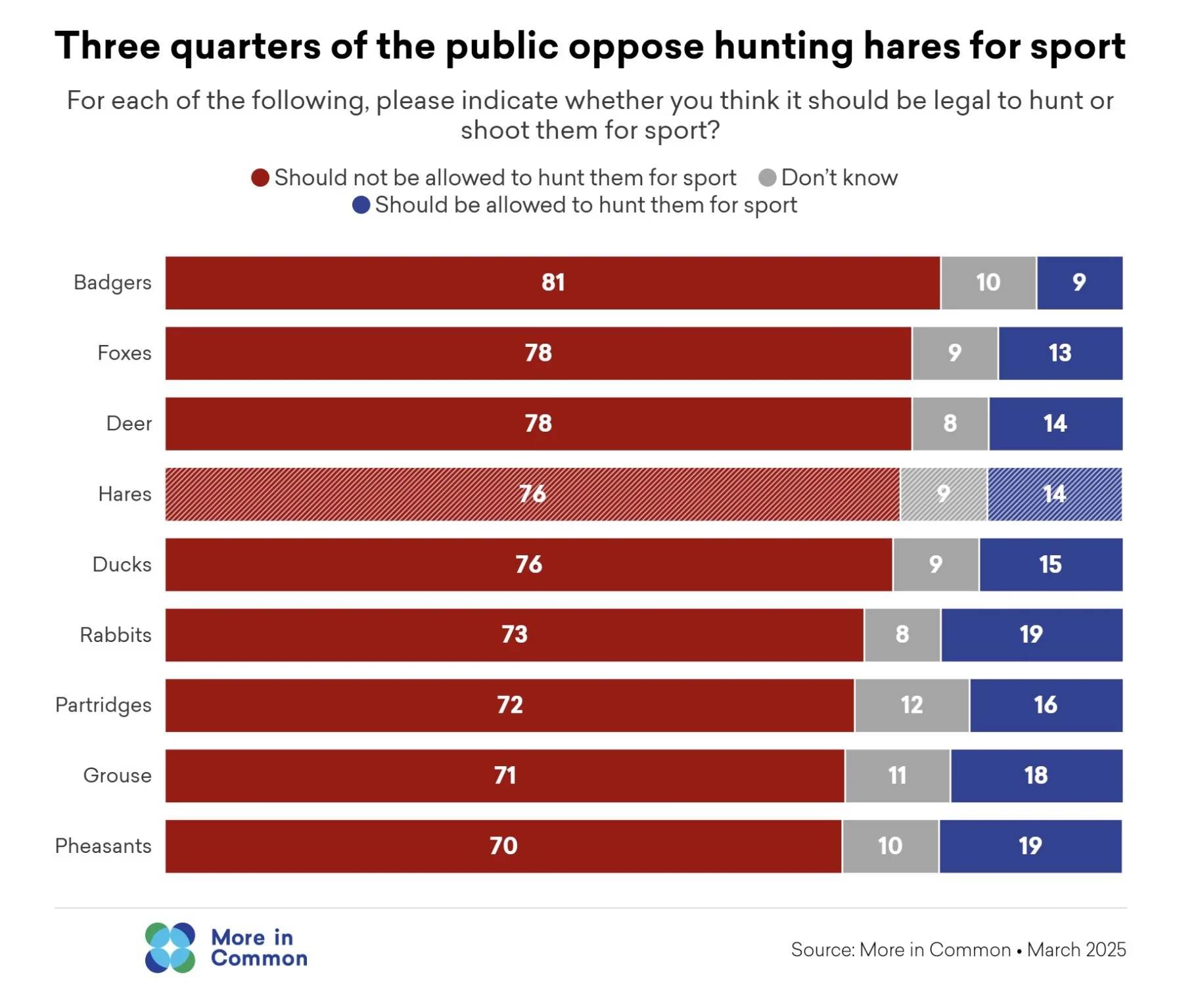The Case for a ‘Close Season’
Hares are the only game species which are not protected by a ‘close season’ in England and Wales: a period of the year during which they cannot be shot and killed.
Other ‘game’ species – such as deer, pheasants and partridges, to name a few – are all protected by a close season.
Hares by contrast can be shot at any time of year, including during the crucial months of February to September, when they typically raise their young.
The UK government should establish a ‘close season’ for hares from 1st February to 30th September inclusive, to coincide with the main breeding season for hares.
This would help prevent the killing of pregnant and nursing hares – and the subsequent starvation of dependent leverets – while supporting the UK’s biodiversity targets.
Scotland and the rest of Europe already protect hares in this way. Only in England and Wales does this anomaly persist.
Parliament Progress
Open Letter: Chloe Dalton has written an open letter to the Prime Minister along with veterinarians, conservationists, authors, members of the shooting community, landowners, historians and others.
Early Day Motion: Ruth Jones MP has tabled this Early Day Motion in the House of Commons on 23 April 2025.
Hares (Close Season) Bill: Baroness Arminka Helic has introduced this Private Members’ Bill in the House of Lords in November 2024
Close Season News
Why is introducing a law to protect hares going at a tortoise’s pace?
OPINION PIECE | PUBLICATION: THE FINANCIAL TIMES | PUBLICATION DATE: 16 JUNE 2025
Respite for hares as officials back a close season for hunting
OPINION PIECE | PUBLICATION: THE TIMES | PUBLICATION DATE: 1 JUNE 2025
Limit hare shooting to stem their dramatic decline
OPINION PIECE | PUBLICATION: THE TIMES | PUBLICATION DATE: 24 MARCH 2025
How you can help
If you would like to help by sending a letter to your local MP, please find a draft below, as well as some extra information on how to get this message across.
Draft Letter / Email to your MP
[Your full address*]
[And postcode*]
[Date*]
Dear [MP’s Name],
As your constituent, I am writing to you to raise my concern about the situation of brown hares in England and Wales from both an animal welfare and biodiversity perspective.
As you may know, hares are the only game species which are not protected by a ‘close season’ in England and Wales, and England and Wales are the only countries in Europe that do not operate a ‘close season’ for hares. This means that, unlike pheasants and deer, they can be shot at any time of the year, even during the crucial months of February to September, when hares typically raise their young. Leverets orphaned in this way typically starve to death.
Large, organized hare shoots, which typically take place in February at the start of the close season for other game, can account for up to 60% of the hare population in some regions. This poses the risk of localized extinction, severely disrupts hare population recovery and is impossible to justify on animal welfare grounds.
I am aware that Baroness Helic has recently introduced a Private Members Bill in the House of Lords, calling for the establishment of a close season in England and Wales from the start of February to the end of September, during which the killing or taking of hares would be prohibited.
I am writing to ask that you take up this issue in the House of Commons, and hope that you will urge the government to introduce a close season.
The government has pledged to end cruel practices detrimental to animal welfare, close loopholes on certain forms of hunting and strengthen legislation to protect animal welfare. In my view, this should absolutely include a close season for hares.
Hares are graceful, mysterious animals which have been present across UK fields for thousands of years. Please address this omission in our wildlife protection laws.
Yours sincerely,
[Your name]
Extra Information
Please feel free to adjust the wording to reflect the contexts of your constituency and/or local MP, as well as your own specific experience(s) with hares, as applicable.
How to find your local MP: members.parliament.uk
How to find the right address:
All addresses have an email address in the following format, which you can use to get in touch [firstname].[lastname].mp@parliament.uk
If you would prefer to write a letter, all MPs have two offices – one in the constituency and their Parliamentary office.
The easiest one to use is Westminster, using the standard Parliamentary address that all MPs use:
[MP Name]
House of Commons
London
SW1A 0AA
If it’s easier to drop a letter into your MP’s constituency office by hand, that address can usually be found on their website.
More in Common Poll
Two-thirds of Britons (66%) support a close season for hares, while only 6% oppose this. This spans across the political spectrum, with a majority of every voter group supporting a close season.
Support for a close season is even higher among those involved with hunting, farming or land management (even though these groups show far higher support for hare hunting in general).
90% of Britons are unaware that hares are the only game species without a statutory close season.
44% of Britons say they don't know if the hare population has changed in the country, and 43% say they don't know if it has changed in their local area. Only 17% say that the country's hare population has decreased in the last 10 years.



